No city we have visited on our travels along the ancient trade routes of China and Central Asia has been quite as evocative of the Old Silk Road than the wonderful frontier city of Kashgar. An oasis city located in the far west Tarim Basin (also known as Kashgaria) of Xinjiang Province, Kashgar was once a major hub of the ancient Silk Road trade. And today it is still a significant trading centre, world famous for its Sunday Bazaar and camel and horse trading markets.
Eclectic Kashgar comprises a population of some 340,000 people; a vibrant mixture of Uighur, Han, Tajik, Kazakh and Urdu cultures and languages - and more. Kashgar however is the traditional home of the fiercely proud Muslim Uighur people who regard their land as their native East Turkestan, and certainly not as mainland China.
Simmering tensions between the Chinese authorities, the Han Chinese and the Uighur people are never far from the surface, and like Urumqi where we had begun our travels to the central asian region, it has frequently resulted in sporadic bloody riots which in the past have been severely and efficiently suppressed by the Chinese military.
The main city centre is surprisingly modern with relatively low rise buildings, and a deceptively almost laid back atmosphere. The city centre is spacious with wide busy roads, beautiful mosques and huge squares and more markets. But looking closer it is still quite possible to discover the mud and clay brick relics of the ancient old city walls which still dissect Kashgar city.
It was the Old City sector which is still surviving that we had returned to see, perhaps for the last time. This was our third visit to Kashgar and we were intent on exploring as much of the old parts of town that we could before it may disappear forever. Sadly, the remains of this fascinating old city are being destroyed at a rapid rate by the Chinese authorities, the argument being it is for safety reasons as the area is so earthquake prone. Of course this is true. And it is more than obvious that much of the old city is truly crumbling. But then again, the old parts of the city have experienced and survived the volatile tectonic activity for centuries.
Already, some 80% of the Old City has been destroyed. It could well be argued that, along with the generous incentives that have resulted in a huge influx of Han Chinese peoples from the east, the destruction and re-building of the old town is an effective tactic in breaking down the Uighur culture and resistance to the Chinese regime. On the other hand, some of the re-building we saw was to our foreign eyes, both tasteful and seemingly in harmony with the old architecture.
Kashgar city was also to be the gateway to our travels along the Southern Silk Road of Xinjiang Province. Our trip would take us south on the highway flanking the mighty Taklamakan Desert through Yengisar and on to Yarkand (Shache), then Hotan (Hetian), Keriya (Yutian)and then north right through the centre of the Taklamakan to the oil mining camp site of Tazhong and via Korla to the city of Urumqi where we had really begun to explore the lesser travelled routes of the Old Silk Road.
Our guide for our Southern Silk Road tour Abdulrahman from Silk Road Adventures had escorted us through the Chinese formalities of the Torugat Pass from Kyrgyzstan to China, and drove us onto Kashgar in 2009. We were delighted to see him again and to have the opportunity to take a walk through the Old City again, this time with a local person. I was delighted too that my stomach was in some sort of repair and would hopefully manage a long morning walk without too much misbehaviour (read: hopefully no exploring of the local public toilets.....).
The four star International Hotel is very centrally located. It is right in the centre of Kashgar City next to the massive Renmin Square with its enormous statue of Chairman Mao, and an easy walk to the Old City and the famous Id Kah Mosque. And it is conveniently right next door to the Bank of China, to our knowledge the only bank that would change travellers' cheques or US dollars and/or had an automatic teller machine for what would be our next five days of travelling.
Our first and most urgent mission was to cash some money. It was a Sunday and we were relieved to find the ATM of the nearby Bank of China was actually working (during our last stay in Kashgar the bank was for some unknown reason not exchanging travellers' cheques nor cashing money on Visa card for that particular day). We would probably never have found the ATM if we had not had Abdulrahman with us. It is very useful to know that the automatic teller stand is located at the very back of the bank in a most insignificant box shelter. Armed with our new bundles of Yuan we felt a lot more relaxed and ready to take on our Old City tour.
Clanking, clinking, clattering and honking - the sights, smells and sounds of old Kashgar city were now very familiar to us.
It was early morning but the ancient sprawling old city, full of Uighur shops and market stalls and interspersed by a labyrinth of crooked dusty lanes and passageways leading to crumbling adobe houses, was alive with tradespeople hammering out copper pots and merchants selling everything from ironware, jewellery, and fine glass to carpets and some very nasty looking knives. A musical instrument maker calmly carving and steaming wood for his elegant lutes on the footpath smiled and welcomed us into his shop. A young boy sitting on the pavement was totally focused on the intricate engraving of wonderful gleaming copper pots and bowls.
Colourful fruit and vegetable markets, and vendors selling fresh eggs, olives and dried fruit were scattered throughout the narrow lane ways. Open air butchers' shops hung carcasses of the very popular fat tailed sheep and bakers were cooking masses of delicious smelling flat breads in large tandoor styled ovens. Rickety two storey tea houses were packed with pill box hatted older Uighur men and scarved thick waisted older women haggled in the lane ways over vegetable prices. Young elegantly clad veiled women in slender fitting tunics and trousers drifted along the narrow lanes, periodically disappearing into dark crumbling adobe caves.
It was wonderful to be back in the old Kashgar that was so evocative of its fascinating ancient silk trading history and where Uighur life seemed not to have changed for centuries. Well, that is not until you come across huge demolition sites where the old houses are being destroyed for new construction. We were pleased however to have the privilege of seeing at least some of the remaining parts of the old city. As mentioned however, some of the reconstruction we saw appeared to be quite tasteful and in keeping with the old architecture.
Abdulrahman was a great guide. Like our experiences in 2009, we found Abdulrahman to have a very pleasant and relaxed manner, a good sense of humour and he was totally reliable. At our request he was happy to let us wander off on our own but was always available to answer our questions about the history, culture and way of life of the Uighur peoples, and life in general in Xinjiang Province.
Abdulrahman and our driver Sabhir were devout Muslims and at first we thought it may be difficult for them to find time for their prayers. But it was not to be. By this stage in our travels we were wanting to be on our own for a lot of the time and while we were dropped off at markets or various sites, Abdulrahman and our driver Sabhir would use the time for religious activities.
Abdulrahman accompanied us for our morning walk around the old city. We were introduced to friendly shop owners and stall holders and happily wandered around the quaint old lanes and the more frenetic streets filled impossibly by now with electric scooters and motor bike driven carts.
Electric scooters are extremely popular in China and we sadly lamented our state government's decision to ban them in Australia, the reason being that they are not registered vehicles and there is no rule for being licensed to ride them. You could not argue that they are not an environmental bonus, being fuel free and run on relatively cheap and efficient batteries. The stupidity of such a decision is well beyond us. It seemed especially ridiculous given the criticism poor China receives for its lack of environmental concerns.
Fortunately for our luggage, we did not find anything to buy although our Alan-the-Compulsive-Carpet-Buyer was sorely tempted by a gorgeous silk carpet. We forced ourselves out of the shop before temptation took control - over both of us.
Dentists shops are a great hit in Kashgar. Numerous dentists' shops displayed pictures of ecstatic smiling models bearing perfectly straight, gleaming white teeth. We asked Abdulrahman about the dentists' qualifications. Well, as it turned out the surgeries are family businesses and dentists learn their trade from family members. There are no formally trained dentists in the old city. "Did they use anaesthetic?" I asked. No, they didn't. "Had Abdulrahman been to one of these dentists?". Abdulrahman, who appeared to have a perfect set of teeth, informed us he had never been to a dentist. With my abject fear of anything dental, I could well understand why.
Abdulrahman left us back at our hotel for some time while he organised to pick up our vehicle and apparently buy the latest satellite navigation device and software. Little did we realise at this time that the strict speed rules imposed by the government made it absolutely essential to have details of the latest speed restrictions and location of traffic cameras. Anyway, the considerable time we spent waiting at the hotel was necessary for us to catch up on a bit of quiet rest and for me to be located near clean toilet facilities.
The Kashgar Sunday Markets are world renown and most tours of the city are tailored to include a Sunday tour of the vast animal and ordinary bazaars. Being true animal tragics we had no desire to see the livestock markets which somewhat puzzled Abdulrahman. Apparently they are the real draw card for tourists, although why anyone would get pleasure out of seeing stressed animals is quite beyond us. Abdulrahman dropped us off at the enormous general markets where we spent an entertaining hour or so wandering around the stalls.
We love buying "fake upmarket watches" but could not find any for sale which we found rather puzzling. Out of the blue a very helpful man asked us if we wanted any assistance. As it happened we had run into the famous "Elvis" otherwise known as Abimit Ghopor, a local Uighur multi-skilled businessman who is written up in Lonely Planet Guide as being a carpet and Uighur music specialist and a travel agent who takes tours to offbeat places. Elvis was wonderful, personally escorting us to the watch selling stalls where Alan had a great time bargaining for watches - while I cowered in the background too cowardly to enter the bargaining process that I dislike so much. I liked my watches though...
While the Sunday market is infinitely larger and more interesting than the daily markets, overall we found it to be somewhat underwhelming. Perhaps we had done too much travel and shopping by then. The markets were jam packed with local shoppers and as usual the most interesting feature we found was watching the frenetic crowds of people buying everything from pashminas and knives and jewellery, to fresh fruit and vegetables.
In the early afternoon we bade farewell to Kashgar and headed off on the first leg of our trip across the Southern Silk Road of China. Our four wheel drive vehicle was virtually new and we were delighted that the car was comfortable and had air conditioning that actually worked
The Silk Road east of Kashgar splits into two arteries both flanking the massive and fearsome Taklamakan Desert. The northern arm follows the railway and main road to Kuqa and Turpan. The southern arm charts a more remote course between the desert and the spectacular Kunlun and Pamir Mountain Ranges. We were almost parallel with the Karakoram Highway on which we had travelled from Pakistan, except we were now heading slightly east and far further south.
The highway was in very good condition, as were most Chinese roads we had driven on. The landscape along the highway was to our surprise mostly irrigation farmed with good looking crops of maize, vegetables and large acreages of cotton crops. On the far horizon loomed the beautiful snow capped peaks of the Kunlun ranges
Our first stop was at the village of Yengisar, some 60 kilometers from Kashgar and famous for its knife production. It seemed every shop was selling some of the ghastly looking weaponry and we idly wondered what a lot of them were made for. We declined Abdulrahman's invitation to look through one of the knife factories. We could just imagine what a field day our Australian Customs authorities would have with a suitcase containing such huge and ornate implements!
We arrived at Yarkand, our final destination for the day in the late afternoon. The pleasant plane tree lined streets made a welcome entrance to the township and we were pleased with our very comfortable Yarkand Queen Hotel, right in the middle of town. We assured Abdulrahman that we would be fine on our own for our evening meal, especially as he told us that our hotel restaurant would be open for dinner.
The hotel was to our delight wonderfully located right next door to a liquor shop where an extremely friendly and helpful shop attendant assisted us with our purchases for the evening. We were starting to feel good, on our own and with adequate beer supplies. What more could we want?
Well, the restaurant never did open and so we had to admit defeat and ask our liquor shop assistant where we could eat. Of course she could not speak any English but it is amazing how successful you can be with charade type hand motions. Within no time she pointed to what appeared to be a series of cafes just opposite her shop. By then it was 9.30 pm Beijing time and we were beginning to doubt our decision to be quite so independent.
On a tree shaded footpath we were eagerly invited by the owners to take seats at the nearest cafe. The evening was balmy and the cafe owners and local Uighur diners were overwhelmingly friendly and helpful. It seemed it was not an issue to open our bottles of beer either.
Of course we had no idea of the menu and so we pointed to dishes that other diners were having. They seemed to be mostly soups with meat, eaten with large pieces of wonderful fresh flat breads. The diners thought it was all very amusing and several introduced themselves in broken English and offered to assist us. It was truly a lovely experience and the food was excellent. Again, it was these sorts of experiences that really made our travels so enjoyable and once again cemented our faith in the decency and honesty of the local people.
Evocative Old Kashgar
Sunday, May 15, 2011
 Kashgar, Xinjiang Uygur Zizhiqu, China
Kashgar, Xinjiang Uygur Zizhiqu, China
Other Entries
-
25For Better or For Worse - We Head off to Islamabad
May 0312 days prior Islamabad, Pakistanphoto_camera4videocam 0comment 0
Islamabad, Pakistanphoto_camera4videocam 0comment 0 -
26Eclectic Chitral - North West Frontier Province
May 0411 days prior Chitral, Pakistanphoto_camera14videocam 0comment 0
Chitral, Pakistanphoto_camera14videocam 0comment 0 -
27The Wonderful Faces of Chitral Town
May 0411 days prior Chitral, Pakistanphoto_camera8videocam 0comment 0
Chitral, Pakistanphoto_camera8videocam 0comment 0 -
28A Four-Seater Jeep, Six People & Two Kalashnikovs
May 0510 days prior Bomburet, Pakistanphoto_camera15videocam 0comment 1
Bomburet, Pakistanphoto_camera15videocam 0comment 1 -
29Love Affair with Rumbur, A Sick Jeep Trip to Buni
May 069 days prior Buni, Pakistanphoto_camera9videocam 0comment 0
Buni, Pakistanphoto_camera9videocam 0comment 0 -
30Insight into the Life of the Lost Kalasha People
May 069 days prior Buni, Pakistanphoto_camera8videocam 0comment 3
Buni, Pakistanphoto_camera8videocam 0comment 3 -
31More Photos of the Kalasha Peoples
May 069 days prior Buni, Pakistanphoto_camera14videocam 0comment 0
Buni, Pakistanphoto_camera14videocam 0comment 0 -
32Tandoori Chicken, Potatoes & Eggs at Shandur Pass
May 078 days prior Gupis, Pakistanphoto_camera23videocam 0comment 0
Gupis, Pakistanphoto_camera23videocam 0comment 0 -
33You Want More.....? Are You Sure.....?
May 087 days prior Gilgit, Pakistanphoto_camera14videocam 0comment 1
Gilgit, Pakistanphoto_camera14videocam 0comment 1 -
34Heaven on Earth at Eagle's Nest Hotel, Duikar
May 096 days prior Duikar, Pakistanphoto_camera19videocam 0comment 1
Duikar, Pakistanphoto_camera19videocam 0comment 1 -
35The Solitude of a Dawn in Duikar
May 105 days prior Karimabad, Pakistanphoto_camera10videocam 0comment 3
Karimabad, Pakistanphoto_camera10videocam 0comment 3 -
36Photo Gallery of Karimabad and the Hunza Area
May 105 days prior Karimabad, Pakistanphoto_camera22videocam 0comment 2
Karimabad, Pakistanphoto_camera22videocam 0comment 2 -
37Our Man From Waziristan or "Titanic!"
May 114 days prior Sost, Pakistanphoto_camera20videocam 0comment 0
Sost, Pakistanphoto_camera20videocam 0comment 0 -
38A Public Bus Over the Khunjerab Pass Into China
May 114 days prior Khunjerab Pass, Pakistanphoto_camera21videocam 0comment 0
Khunjerab Pass, Pakistanphoto_camera21videocam 0comment 0 -
39Our Top Tips for Crossing the Khunjerab Pass
May 123 days prior Khunjerab Pass, Chinaphoto_camera2videocam 0comment 0
Khunjerab Pass, Chinaphoto_camera2videocam 0comment 0 -
40At Home in Lovely Tashkorgan - We Find Hunza Man
May 132 days prior Tashkorgan, Chinaphoto_camera12videocam 0comment 0
Tashkorgan, Chinaphoto_camera12videocam 0comment 0 -
41Two Taxis and a Slow Trip to Kashgar
May 141 day prior Kashgar, Chinaphoto_camera10videocam 0comment 0
Kashgar, Chinaphoto_camera10videocam 0comment 0 -
42Evocative Old Kashgar
May 15 Kashgar, Chinaphoto_camera8videocam 0comment 0
Kashgar, Chinaphoto_camera8videocam 0comment 0 -
43Photo Gallery of Kashgar
May 15later that day Yarkand, Chinaphoto_camera18videocam 0comment 0
Yarkand, Chinaphoto_camera18videocam 0comment 0 -
44Southern Silk Road - Tracking the Taklamakan
May 161 day later Keriya (Yutian) , Chinaphoto_camera16videocam 0comment 0
Keriya (Yutian) , Chinaphoto_camera16videocam 0comment 0 -
45Tazhong - Drawing Chickens in the Taklamakan
May 172 days later Tazhong, Chinaphoto_camera23videocam 0comment 0
Tazhong, Chinaphoto_camera23videocam 0comment 0 -
46Desert Devils of the Taklamakan
May 183 days later Korla (Bayingol), Chinaphoto_camera11videocam 0comment 0
Korla (Bayingol), Chinaphoto_camera11videocam 0comment 0 -
47Toward Urumqi - Siamese Mountains and Wind Farms
May 194 days later Urumqi, Chinaphoto_camera3videocam 0comment 0
Urumqi, Chinaphoto_camera3videocam 0comment 0 -
48A Day in Urumqi and The Fabulous Erdaoqiao Markets
May 205 days later Urumqi, Chinaphoto_camera6videocam 0comment 0
Urumqi, Chinaphoto_camera6videocam 0comment 0 -
49R & R in the Extraordinary City of Shanghai
May 216 days later Shanghai, Chinaphoto_camera10videocam 0comment 0
Shanghai, Chinaphoto_camera10videocam 0comment 0 -
50A Remarkably Unremarkable Journey Home
May 238 days later Crowdy Head, Australiaphoto_camera1videocam 0comment 1
Crowdy Head, Australiaphoto_camera1videocam 0comment 1

 Kashgar, Xinjiang Uygur Zizhiqu, China
Kashgar, Xinjiang Uygur Zizhiqu, China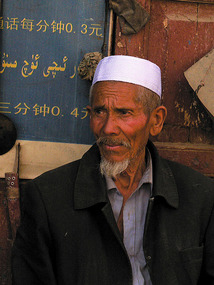
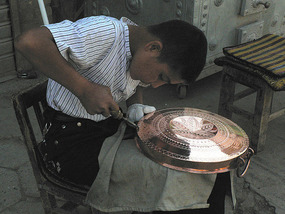
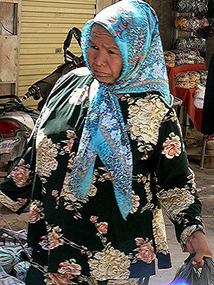
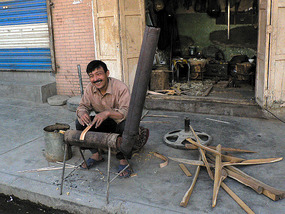
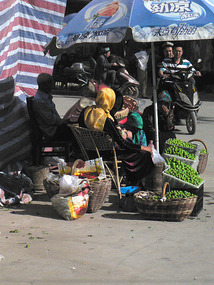
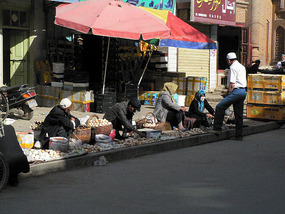
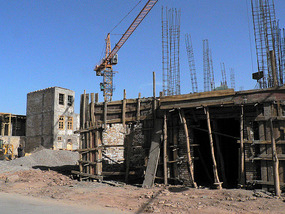
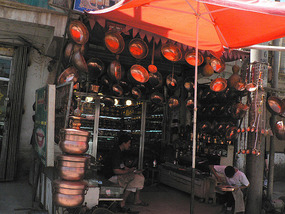



2025-05-22